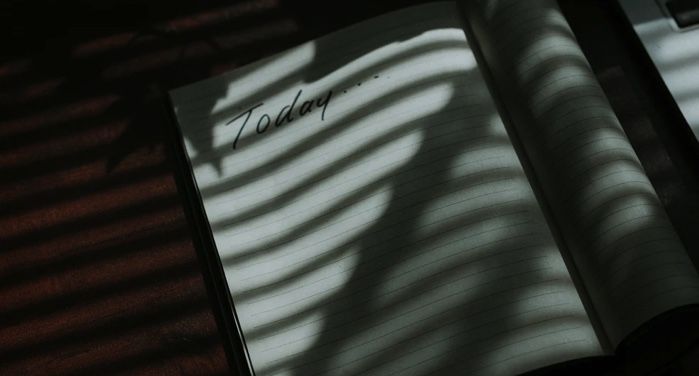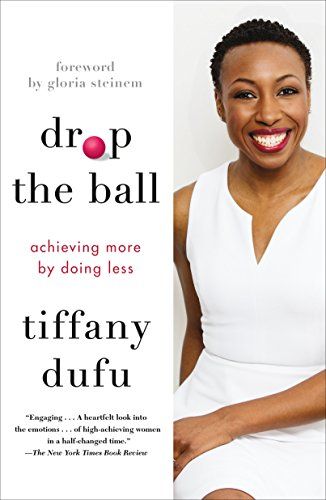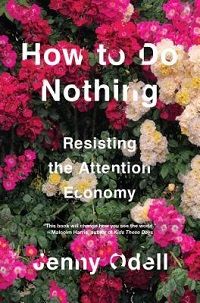
How I Learned To Be Less Productive and Feel OK About It
It all started with Tiffany Dufu’s Drop the Ball. The subtitle is “Achieving More by Doing Less,” and there is not a subject on Earth I am more interested in hearing about (with the possible exception of the Fast and Furious franchise). I saw it in a catalog, I got a review copy from the publisher, I read it, and my life was changed forever. Sort of.
My brain was definitely changed forever, because while my background and life situation are different from Dufu’s (the most obvious difference being she is a Black woman and I am white), her message was exactly what I needed to hear. Dufu tackles the exhaustive and exhausting quest to do everything we (“we” in this case being women, and even more particularly those in heterosexual relationships) believe we have to do. Put in our time at work. Advance our careers. Grocery shop. Check the mail. Maintain friendships. Be a good friend, a good partner, a good parent. Do everything, all the time forever, and do it well. When Dufu, like so many others before her, finally realized she couldn’t go on doing this, she was crying in a bathroom stall at work, freshly returned from maternity leave, and emotionally wrecked by everything on her plate.
There are lots of answers out there for how to increase your productivity. Bullet journal! Make lists! Meditate, put your phone on silent, eat the frog. (I have done all these things and then some.) But Dufu took a different tack: she would stop doing things.
“Is that … an option?!” was my immediate thought, and hers as well. And I’m not going to lie, there were several anecdotes in this book that gave me mental hives — particularly one about unopened mail, which to this day I cannot think about without cringing. But she stopped doing things, learned how to communicate about what was important to get done (but not by her) with her partner, learned how to hand off some tasks, and learned how to just drop some things. No one would do them, and that was okay.
Insert “mind-blown” GIF here. But the longer I sat with this concept, the more I saw how badly I needed it, and the more incidents I could remember where the Universe had been trying to tell me this message; sometimes gently, sometimes not. I started seeing balls everywhere. My to-do list was overflowing with things no one had asked me to do, and that I honestly wasn’t even sure if anyone else noticed I was doing, but that I felt like I had to do. Why? Why did I have to do them?
I’m a white, cisgender woman in America, so there are plenty of things I have been socialized to believe I have to do, and I come from a long line of compulsive people-pleasers. But I’m also privileged in terms of my time and situation: I’m fully employed with health insurance and benefits, I’m not a caregiver who has others depending on me for their physical wellbeing, and I work for a company that does its best to walk the walk in caring for the mental health and well-being of its employees. When I took my work to-do list to my boss, to see what balls I could drop, her immediate response was, “Yeah, stop doing those things! They aren’t worth your time.”
Support like that was an exception, not a norm. I graduated college in 2004, found steady work (albeit underpaid) throughout the recession, and spent a lot of time working multiple jobs, more than full-time, sometimes without benefits and always with loads of debt. In 2014 I was so stressed about leaving one job to start another that I literally overworked myself into a chronic health condition that I will have forever. And that wasn’t just me manufacturing tasks, although there were probably things I could have dropped; it was toxic work environments, financial insecurity, and societal pressure to succeed at a “dream job” in an industry that routinely undervalued its employees and had extraordinarily thin margins at best. (Publishing and bookselling, you know this is you.) If the privileges I did have in those years weren’t enough to save me from this, I know it’s only worse for those from marginalized communities, with politicized bodies and identities, with fewer resources and fewer opportunities to access them, and with so much more to prove.
So I committed to Dufu’s thesis: I would drop balls, and I would not feel bad about dropping them. I sort of succeeded; my work to-do got more manageable. I still felt anxious and stressed out all the time, but I thought that was my fault, because there was no external reason for it. Right?
Then Amanda encouraged me read How To Do Nothing by Jenny Odell. Her thesis? That technology, particularly social media, is designed in toxic ways, and it’s designed to turn your attention into a consumable product that others benefit from. She’s not the first person to make the argument and she won’t be the last, but Odell’s framing around dismantling the “attention economy” was what I needed to make sense of my own participation in the digital space. I have been Extremely Online for decades, with the classic cycles of retreat and re-engagement that so many of us experience, and I’ve read all about disconnecting from Twitter or Facebook and fighting FOMO on Instagram, but somehow I had never been able to see the bigger picture. It’s about the systems that create the pressure to engage in these cycles, and how we can step back and name it for what it is. It’s not about whether I choose in any individual moment to scroll or not to scroll, it’s about deciding how much labor I’m willing to do for companies who aren’t paying me for my time, my effort, my attention.
As if that wasn’t enough, there quickly followed the 1-2-3 punch of Can’t Even by Anne Helen Petersen, Brave, Not Perfect by Reshma Saujani, and The Imposter Cure by Jessamy Hibberd for work book group, all during a pandemic. The universe was calling me OUT. Petersen gave me the historical context for my middle-class burnout. Saujani highlighted exactly why sharing any creative work or goals with the wider world, whether it was one person or the entirely of Twitter, was such a constantly terrifying prospect for me; failing in public is still a nightmare scenario, but one I now have awareness of and tools to use when it — inevitably — happens. Hibberd taught me that my belief that I didn’t have Imposter Syndrome because I wasn’t afraid of being called a fraud was incorrect. (Turns out that being afraid everyone will be mad at you is just as effective at creating the negative mental spiral that characterizes this pervasive mindset.) And the pandemic taught me, over and over again, that I had to ask for help, that sometimes my brain was going to be mush and I was going to fuck up, that sometimes my coworkers brains were going to be mush and they were going to fuck up, and that that was Normal. (What!!!!!) The fact that it has taken me until 38 to begin to understand that failure is a healthy, expected, and potentially positive part of life is truly gobsmacking, to say the least.
Of course, none of these books are perfect. Dufu’s and Petersen’s books are both focused primarily around the middle class and up; Brave, Not Perfect doesn’t dig into how the “brave” messaging for boys plays into toxic masculinity; and The Imposter Cure doesn’t address what happens if your workplace is not just encouraging overwork but requires it of you. Still, I can’t help but wonder. What if we started dropping things, on purpose, before we collapse? What if we supported those around us in dropping unnecessary balls, in taking time off? What if opting out of the hamster wheel of productivity didn’t mean dumping it all on someone else, who may not have the option to opt out in turn? What if we collectively refused to play into toxic work environments? I hope we can find out.












